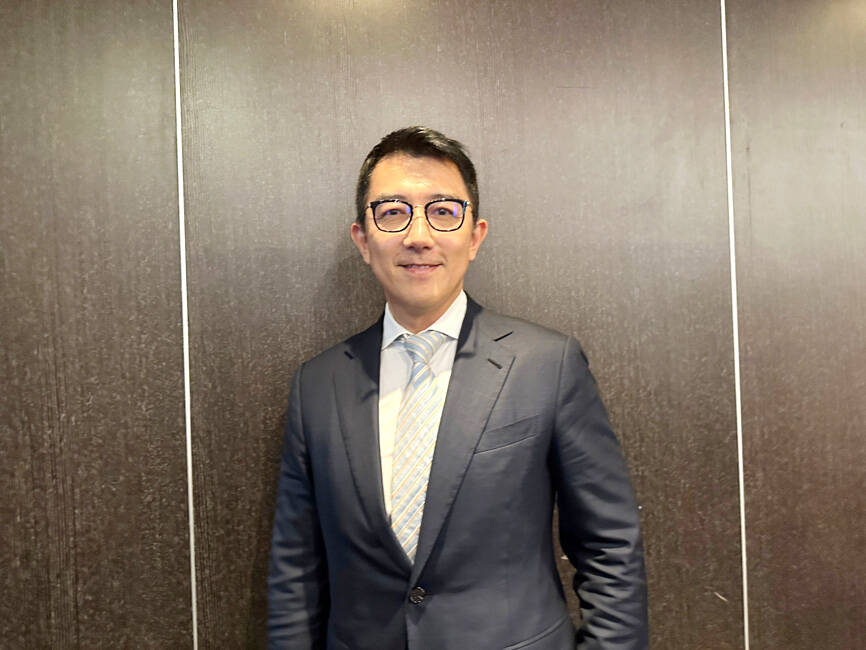Bora Pharmaceuticals Co (保瑞藥業) has acquired six brand product licenses, rights and process technologies in the US for US$38.5 million, and expects them to start contributing to revenue in the fourth quarter of this year, the company said in a filing with the Taiwan Stock Exchange yesterday.
Bora’s board of directors approved the deal with Morristown, New Jersey-based Almatica Pharma Inc, as the Taiwanese firm moves into the brand product market to diversify risks away from generic drugs, the filing said.
The deal would enable Bora to leverage its sales platforms to enter the brand product market, it said.

Photo: CNA
Established in 2008, Almatica —a US subsidiary of Alvogen Group — focuses on the development, acquisition and commercialization of pharmaceutical products. Its product portfolio includes psychiatry, pain management, anti-infective and cardiovascular treatments, the company’s Web site says.
The six brand products are Zestril, Tenormin and Tenoretic for cardiovascular treatment, and Forfivo XL, Naprelan and Fluoxetine HCL for treating central nervous system issues, Bora said.
Sales of the six drugs in the US totaled about US$220 million last year, the company said, citing data from life sciences researcher Iqvia Institute.
As the deal was conducted through Bora’s subsidiary TWi Pharmaceuticals Inc (安成藥), it would greatly bolster the generic-drug unit’s product portfolio in the US market, while reducing its concentration on generic drugs, Bora chairman Bobby Sheng (盛保熙) told an investors’ conference in Taipei yesterday.
After TWi completes its takeover of the six products’ licenses and rights, it can deploy Bora group’s contract manufacturing and development expertise for mass production, which would not only increase TWi’s profit, but also boost the parent company’s global contract manufacturing business, Sheng said.
Bora’s second-quarter net profit surged 192 percent to NT$700.83 million (US$21.92 million) from NT$239.99 million in the same period last year. That translated into earnings per share (EPS) of NT$8.95, compared with NT$3.2 a year earlier.
EPS in the first half of the year was NT$22.54, up from NT$5.57 a year earlier, while gross margin improved to 46.09 percent, from 37.12 percent, it said.
With cumulative revenue in the first half of the year jumping 220.5 percent year-on-year to NT$7.92 billion and a better business outlook, the company yesterday raised its annual revenue growth forecast to between 30 and 35 percent, from its previous estimate of 20 to 30 percent.
It also raised its gross margin forecast to between 45 and 50 percent, from its earlier projection of 45 percent.

South Korea’s equity benchmark yesterday crossed a new milestone just a month after surpassing the once-unthinkable 5,000 mark as surging global memory demand powers the country’s biggest chipmakers. The KOSPI advanced as much as 2.6 percent to a record 6,123, with Samsung Electronics Co and SK Hynix Inc each gaining more than 2 percent. With the benchmark now up 45 percent this year, South Korea’s stock market capitalization has also moved past France’s, following last month’s overtaking of Germany’s. Long overlooked by foreign funds, despite being undervalued, South Korean stocks have now emerged as clear winners in the global market. The so-called “artificial intelligence

NEW IDENTITY: Known for its software, India has expanded into hardware, with its semiconductor industry growing from US$38bn in 2023 to US$45bn to US$50bn India on Saturday inaugurated its first semiconductor assembly and test facility, a milestone in the government’s push to reduce dependence on foreign chipmakers and stake a claim in a sector dominated by China. Indian Prime Minister Narendra Modi opened US firm Micron Technology Inc’s semiconductor assembly, test and packaging unit in his home state of Gujarat, hailing the “dawn of a new era” for India’s technology ambitions. “When young Indians look back in the future, they will see this decade as the turning point in our tech future,” Modi told the event, which was broadcast on his YouTube channel. The plant would convert

‘SEISMIC SHIFT’: The researcher forecast there would be about 1.1 billion mobile shipments this year, down from 1.26 billion the prior year and erasing years of gains The global smartphone market is expected to contract 12.9 percent this year due to the unprecedented memorychip shortage, marking “a crisis like no other,” researcher International Data Corp (IDC) said. The new forecast, a dramatic revision down from earlier estimates, gives the latest accounting of the ongoing memory crunch that is affecting every corner of the electronics industry. The demand for advanced memory to power artificial intelligence (AI) tasks has drained global supply until well into next year and jeopardizes the business model of many smartphone makers. IDC forecast about 1.1 billion mobile shipments this year, down from 1.26 billion the prior

People stand in a Pokemon store in Tokyo on Thursday. One of the world highest-grossing franchises is celebrated its 30th anniversary yesterday.